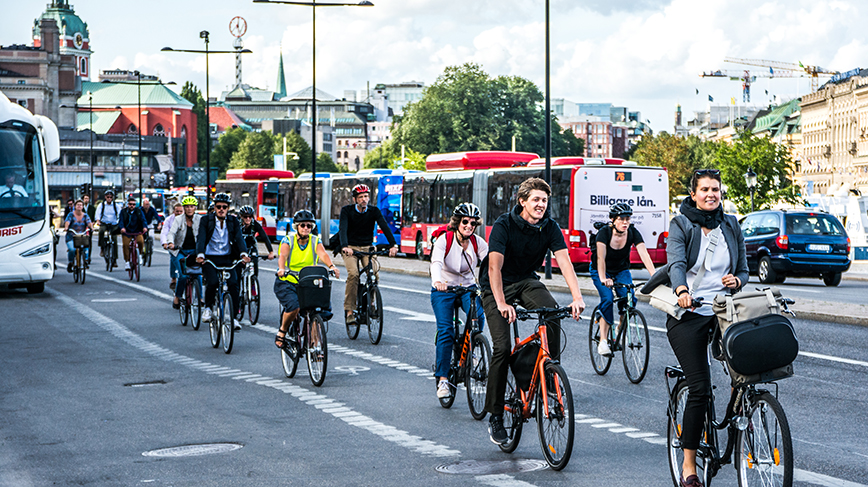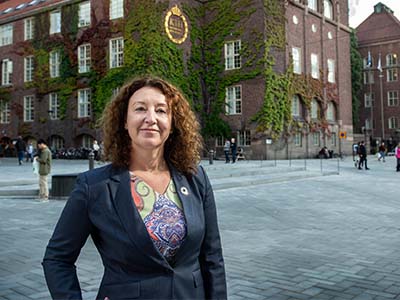Viable Cities inspires the world to create climate city contracts

Viable Cities is a groundbreaking Swedish innovation programme for climate neutral cities by 2030, hosted by KTH Royal Institute of Technology. With support from multiple national partners, the programme has grown rapidly the past year. Cities around the world are now asking Viable Cities for support in implementing climate city contracts.
In late 2020, nine Swedish cities signed Viable Cities’ first climate city contract, committing to create concrete contributions to speed up the climate transition. Climate-neutral cities 2030 focuses on cities as they account for 70% of all greenhouse emissions. On 8 December 2021, a revised contract was signed.

Olga Kordas is the programme director of Viable Cities and says the growth is remarkable. They’ve scaled up from nine to 23 cities, encompassing 40% of the Swedish population.
“The cities that commit are innovative in how they attract investments and use solutions for climate smart mobility, decarbonisation of energy and food systems,” Kordas says.
“Within the next few years, we want to scale up to all municipalities with measurable methods and mobilise climate investments.”
Research-based approach
Viable Cities’ work is based on science explaining how transformative system change happens in society. They involve industry, academia, research institutes and civil society.
Viable Cities provides strategic intelligence, funds initiatives and assists with tools to accelerate change. Cities and their partners are co-creating at Viable Cities’ transition lab led by KTH.
“We also fund other projects with the commonality that they’re of a transformative character. One is called City as a Platform where 18 municipalities test and collaborate around common internet of things-platforms to support sustainable urban development,” Kordas says.
International work
NetZeroCities , part of Horizon 2020 and the European Union’s Green Deal, is currently creating a mission platform for climate neutral cities in Europe by 2030.
“We’re part of the consortium, helping with developing climate city contracts and supporting with innovation and tools,” Kordas says.
Viable Cities is also working with UN Habitat on The Climate Smart Cities Challenge , a global initiative to accelerate climate transition in Bogota, Colombia; Bristol, United Kingdom; Curitiba, Brazil; and Makindye Ssabagabo, Uganda. Organisations compete with their best climate solutions and the winners receive funds to help support the cities.
“We’re planning on developing this idea, possibly taking it to the US,” Kordas says.
Nicky Rosenberg
